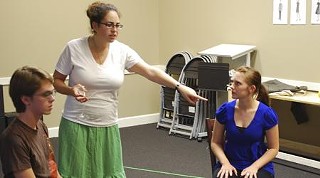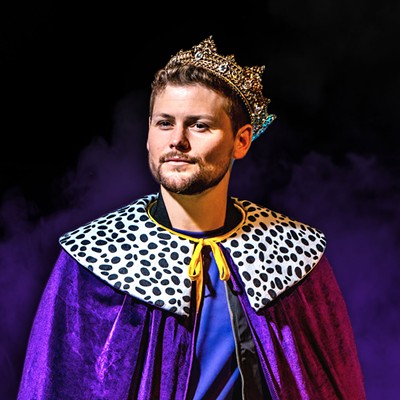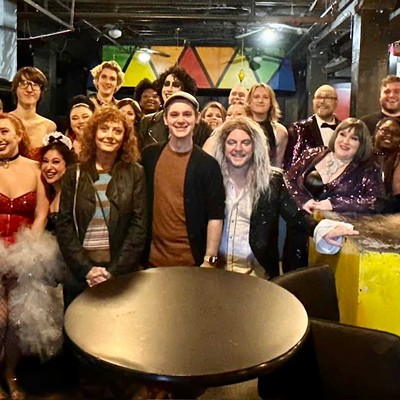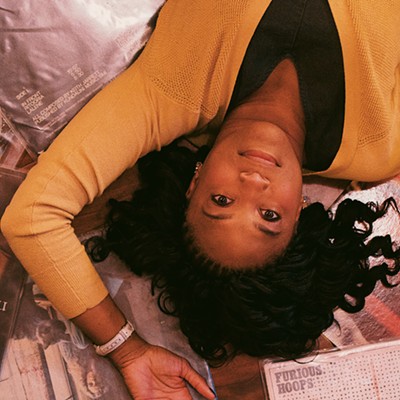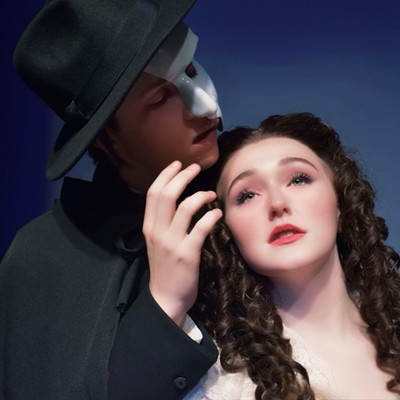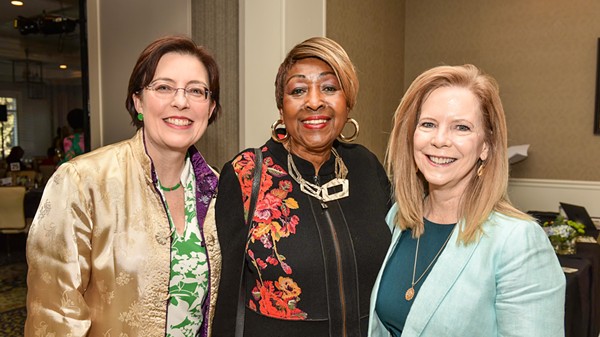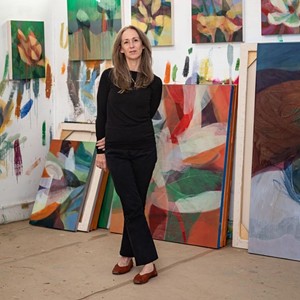Like Alice through the looking glass, Jean — a timid New Yorker — discovers a portal to another world. But Jean doesn’t find mad hatters, murderous queens and psychedelic tea parties.
In playwright Sarah Ruhl’s Dead Man’s Cell Phone, Jean’s wonderland is a place where regular people — well, some of them are regular — take tentative steps toward learning how to communicate with each other.
“It’s about communication and it’s about intimacy,” says Sharon Ott, who’s directing Ruhl’s comedy this week at SCAD’s Mondanaro Theatre. “How do we form connections with people? Are we living in a world where that’s more difficult for us than it has been? The connections might be boyfriend/girlfriend, mother/son, husband/wife... it’s all about how people form those connections.”
The play begins when Jean, annoyed by the constant ringing of a nearby cell phone during her lunch hour, picks it up, exasperated. Gordon, the stranger sitting mute by the phone, turns out to be dead.
Jean answers it anyway. And so begins her incredible journey.
“The framework is this cell phone, this kind of mechanized connection that epitomizes in some ways the disconnection that we all live in,” Ott explains.
“The playwright doesn’t have any moral to the story, I don’t think; it’s a poetic examination of that state. Of human beings who desire and want connection, but who find it perhaps increasingly difficult to find.”
Ott, who’s been teaching theater at SCAD since early 2007, is the recipient of an Obie Award and two Drama–Logue Awards. She came to Savannah with impeccable and impressive credentials. For 13 years, she was Artistic Director at California’s Berkeley Rep; it was her innovative programming that won the company the Regional Theatre Tony Award for Excellence.
For the nine years prior to her arrival here, Ott was artistic director at Seattle Rep. At both gigs, she developed numerous plays that achieved great recognition nationally. She’s worked with many of the nation’s leading stage actors, and the list of lauded playwrights she has supported includes, among others, Sarah Ruhl.
“I’ve known Sarah for about eight years,” Ott says. “In fact, her play The Clean House –— which was the Pulitzer Prize–nominated one — we did a reading of at Seattle Rep. I couldn’t get the theater to take a risk on her — that was pretty much the beginning of the end for me and Seattle Rep.
“I saw the premiere of Dead Man’s Cell Phone in L.A., and I really liked it. When I came here, I thought there’s something about her work that’s very right for college kids. She’s young–ish, she’s more of their generation than a lot of them... she’s associative in the way she puts together plays, so it’s clear that she’s coming from a different generation than, say, August Wilson or Tony Kushner. The students really respond to her work. It’s the way they talk.”
Working with young thespians has become a distinct pleasure for Ott. “There’s a very specific reward when you feel you’ve helped some young person, either become a better actor or just find their place within the profession,” she says. “That’s a very different kind of reward than running a theater.”
The business of operating a professional theater was fast becoming a game of dodge ball, what with budget cuts, increasing overhead and board members nervous about taking on shows that — gasp — might not recoup their costs.
“I think I got out just in time,” Ott says, “because now it’s really tough. The last couple of years I ran the Seattle Rep was the beginning of what has remained just a wicked time for not–for–profit arts. This current economy has just been brutal.”
Savannah, she’ll admit, has been something of an adjustment. “Everything couldn’t be more different, to be honest. But it’s what my husband and I wanted. We wanted a real change.
“I’d run theaters for 21 years, which is enough time to do that. And I’m at an age where I wanted to start to pass on what I know to the next folks.
“I never got an advanced degree — I’m one of the SCAD people who comes in with a lot of professional experience, and not a lot of academic experience. I thought it was time to get to know the next generation, and share with them what I’ve learned. This was a good environment to do that.”
Her official SCAD title is Artistic Director of the Department of Performing Arts. The department’s 2009–2010 season will also include A New Brain, MacBeth, Animal Farm the Musical, Beth Henley’s Impossible Marriage and others.
“Quite frankly, it’s a learning experience for me, and that’s what I like most about it,” Ott explains. “I’ve done a lot of professional directing, but I’ve never taught directing. So in a way, I’ve looked at it as my own graduate education. So I get a chance to read all the books again, and decide what I like and what I don’t like. You refine what you think. And that’s great.
“Because when you’re in the corporate mode, you learn what’s successful very quickly, and you replicate that. And there’s sometimes a feeling that you’re not learning a lot of new stuff, except for the new plays you direct. So this is different.”
Case in point: Dead Man’s Cell Phone.
“We don’t have to sell tickets,” says Ott. “I mean we do, we want to, but we’re not under the same kind of pressures that a professional theater is. So we can take chances. And we should take chances.” cs
Dead Man's Cell Phone
Who: SCAD Dept. of Performing Arts
Where: Mondanaro Theatre, 22 Abercorn St.
When: At 8 p.m. Oct. 22-24; 3 p.m. Oct. 25
Tickets: $10 public, $5 valid SCAD ID, seniors, military, students

